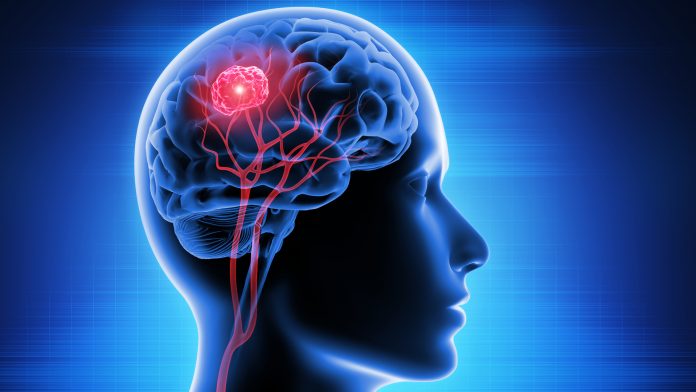
Scientists have developed a world-first test to detect brain tumours using urine samples.
Researchers at the Cancer Research UK Cambridge Institute have demonstrated a way to detect the presence of glioma, a type of brain tumour, in patient urine or blood plasma.
The study has been published in EMBO Molecular Medicine.
Despite the analysis being small and in its infancy, researchers hope that these tests could eventually be used by GPs to monitor patients at high risk of brain tumours – offering a more convenient alternative to regular MRI scans.
The researchers, led by Dr Florent Mouliere, based at the Rosenfeld Lab of the Cancer Research UK Cambridge Institute and at the Amsterdam UMC, and Dr Richard Mair, based at Cancer Research UK Cambridge Institute and the University of Cambridge, developed two approaches in parallel to overcome the challenge of detecting brain tumour cfDNA.
The first approach was applied to patients who have previously had glioma removed and biopsied. The team designed a tumour-guided sequencing test that was able to search for mutations found in the tumour tissue within the cfDNA in the patient’s urine, CSF, and blood plasma.
In total, eight patients with suspected brain tumours based on MRIs were included in this part of the study. Samples were taken at their initial brain tumour biopsies, alongside CSF, blood, and urine samples.
By determining where in the DNA strand to look, the researchers were able to detect mutations even in tiny amounts of cfDNA found in the blood plasma and urine. The test was able to detect cfDNA in seven out of eight CSF samples, 10 out of the 12 plasma blood samples and 10 out of the 16 urine samples.
Machine learning
For the second approach, researchers looked for other patterns in the cfDNA that could also indicate the presence of a tumour, without having to identify the mutations.
They analysed 35 samples from glioma patients, 27 people with non-malignant brain disorders, and 26 healthy people. They used whole genome sequencing, where all the cfDNA of the tumour is analysed, not just the mutations.
They found in the blood plasma and urine samples that fragments of cfDNA, which came from patients with brain tumours were different sizes than those from patients with no tumours in CSF. They then fed this data into a machine learning algorithm which was able to successfully differentiate between the urine samples of people with and without glioma.
The researchers say that while the machine learning test is cheaper and easier, and a tissue biopsy from the tumour is not needed, it is not as sensitive and is less specific than the first tumour-guided sequencing approach.
Potential for earlier detection of brain tumours
Whilst MRI scans are not invasive or expensive, they do require a hospital visit and the three-month gap between checks can be a regular source of anxiety for patients. The researchers suggest that these new tests could be used between MRI scans, and could ultimately be able to detect a returning brain tumour earlier.
Future research
For the next stage of this research, the team will compare both tests against MRI scans in a trial with patients with brain tumours who are in remission to see if it can detect if their tumours are returning at the same time or earlier than the MRI. If the tests prove that they can detect brain tumours earlier than an MRI, then the researchers will look at how they can adapt the tests to be offered in a clinic, which could be within the next ten years.
“We believe the tests we’ve developed could in the future be able to detect a returning glioma earlier and improve patient outcomes,” said Mair.
“Talking to my patients, I know the three-month scan becomes a focal point for worry. If we could offer a regular blood or urine test, not only will you be picking up recurrence earlier, you can also be doing something positive for the patient’s mental health.”
Michelle Mitchell, Chief Executive of Cancer Research UK, said: “While this is early research, it’s opened up the possibility that, within the next decade, we could be able to detect the presence of a brain tumour with a simple urine or blood test. Liquid biopsies are a huge area of research interest right now because of the opportunities they create for improved patient care and early diagnosis. It’s great to see Cancer Research UK researchers making strides in this important field.”
























